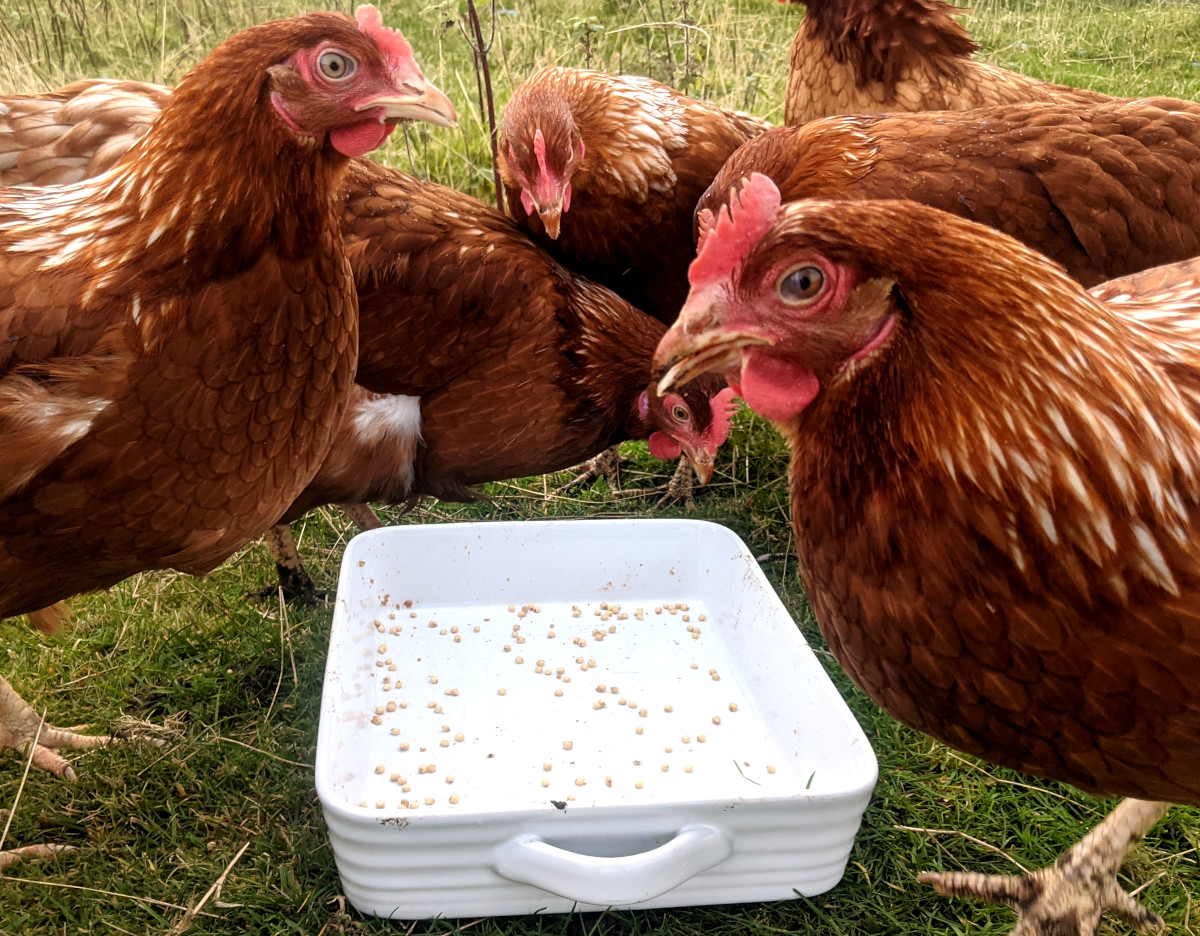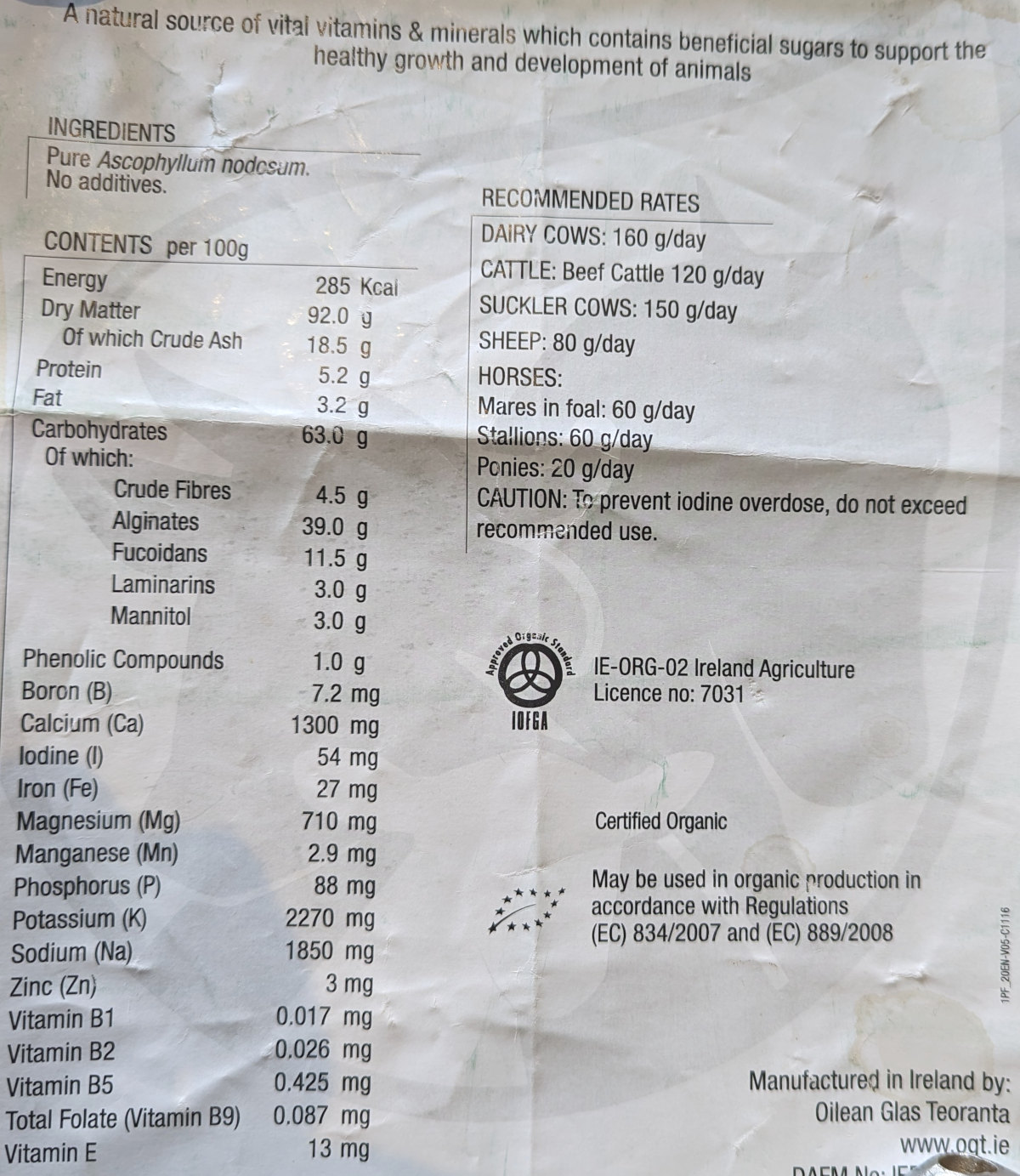The vitamins and minerals in chicken feed.

As the saying goes, "you are what you eat." This statement applies not only to humans but also to chickens. A well-balanced diet is crucial for the growth, development, and overall health of chickens.
Minerals are inorganic compounds that are essential for various physiological functions. Chickens require minerals for bone health, muscle function, nerve function, and overall health. Vitamins are vital amines needed for many bodily processes.
What to feed chickens:
Commercial feeds like pellets or mash are specially formulated to meet the nutritional needs of chickens and are the primary source of vitamins and minerals in their diet.
Grains, such as corn and wheat, can also provide essential nutrients. Green leafy vegetables, such as kale and spinach, are excellent sources of vitamins and minerals and can be fed to chickens as a supplement to their diet.
Supplements, such as oyster shells and limestone, can provide additional calcium to support bone health and eggshell formation. Meat and bone meal can also be used as a supplement to provide additional minerals, such as iron and zinc.
Below: My chickens eating up all their treats.
It is not recommended to give chickens human vitamin supplements as they may contain ingredients that can be harmful to birds and the doses are too large.
A lack of vitamins and minerals can affect egg production and quality. Providing the necessary nutrients can improve egg quality and increase egg production.
Too many vitamins and minerals can be harmful to chickens. It's essential to provide a balanced diet that includes all the necessary nutrients in the right proportions.
Here is a table of the vitamins and minerals in chicken feed and their effects:
| Vitamin / Mineral | Effects and uses in the body. |
|---|---|
| Vitamin A | Vitamin A is essential for vision, growth, and immunity. Chickens can obtain vitamin A from green leafy vegetables, yellow vegetables, and fruits. |
| Vitamin D | Needed for calcium and phosphorus absorption and bone health. Chickens can obtain vitamin D from sunlight or through their diet. It also plays a role in egg production and the development of healthy feathers. |
| Vitamin E | Vitamin E is an antioxidant that protects cells from damage and is essential for muscle and immune function. Chickens can obtain vitamin E from wheat germ, vegetable oils, and green leafy vegetables. |
| Vitamin K | Essential for blood clotting and bone health. Chickens can obtain vitamin K from green leafy vegetables, grains, and alfalfa meal. |
| Calcium | Calcium is essential for bone health, eggshell formation, and muscle function. Chickens can obtain calcium from pasture, oyster shells, limestone, and commercial feeds. |
| Phosphorus | Phosphorus is essential for bone health, energy metabolism, and cell function. Chickens can obtain phosphorus from grains, meat and bone meal, and commercial feeds. |
| Potassium | Potassium is essential for nerve function, muscle function, and electrolyte balance. Chickens can obtain potassium from green leafy vegetables and commercial feeds. |
| Sodium | Needed for fluid balance and energy production. Sodium is essential for nerve function, muscle function, and electrolyte balance. Chickens can obtain sodium from, insects, salts and commercial feeds. |
| Magnesium | Magnesium is essential for bone health, muscle function, and energy metabolism. Chickens can obtain magnesium from green leafy vegetables and commercial feeds. |
| Iron | Needed for carrying oxygen in the blood. Iron is essential for oxygen transport and energy metabolism. Chickens can obtain iron from meat and bone meal and commercial feeds. |
| Iodine | Helps growth, reproduction and thyroid function. Needed for skin, feather and beak health. |
| Copper | Needed for production of red blood cells and connective tissue. Copper is essential for bone health, immunity, and energy metabolism. Chickens can obtain copper from insects, meat and bone meal and commercial feeds. |
| Zinc | Zinc is essential for immunity, growth, wound healing and reproductive function. Chickens can obtain zinc from meat and bone meal and commercial feeds. |
| Manganese | Manganese is essential for bone health and energy metabolism. Chickens can obtain manganese from grains and commercial feeds. |
| Selenium | Antioxidant that protects cells from damage. Selenium is essential for immunity and antioxidant function. Chickens can obtain selenium from grains and commercial feeds. |
| Vitamin B12 | Needed for red blood cell production and nerve function. |
| Niacin B3 | Needed for energy production and nerve function. Niacin helps to convert nutrients into energy, create cholesterol and fats and create and repair DNA. |
| Vitamin B6 (Pyridoxine) | Needed for protein metabolism and nerve function. Has various functions including the breakdown of proteins, carbohydrates and fats. |
| Folate B9 (Folic acid) | Needed for DNA synthesis and cell growth. Needed for proper brain function and development during growth. All the B vitamins are needed for a successful hatch. |
| Pantothenic Acid B5 | Pantothenic acid is involved in the metabolism of carbohydrates, fats, and proteins in the body, particularly in fat synthesis. |
| Biotin (B7) | Biotin is needed for normal function of the thyroid and adrenal glands, the reproductive tract and the nervous system. Biotin is active in skin formation and maintenance. |
| Thiamin (B1) | An essential vitamin for metabolic energy supply and critical for normal growth and development. |
| Vitamin C | Antioxidant that protects cells from damage. Helps reduce heat stress in chickens. |
It is possible to provide vitamins and minerals through homemade feeds, but it is essential to ensure that the diet is well-balanced and provides all the necessary nutrients.
Benefits of Vitamins and Minerals in a Chicken's Diet
Providing a well-balanced diet that includes the essential vitamins and minerals can benefit chickens in various ways. Some of the benefits include:
Promotes overall health and well-being: Vitamins and minerals play a crucial role in maintaining good health and well-being in chickens. A well-balanced diet can help prevent various health problems and promote optimal growth and development.
Improves egg quality: Providing the necessary vitamins and minerals can improve egg quality, including shell thickness, yolk colour, and albumen quality.
Supports growth and development: Vitamins and minerals are essential for growth and development in chickens. Providing a well-balanced diet can help young chickens develop properly and reach their full potential.
Boosts immune system function: Vitamins and minerals are essential for a healthy immune system. Providing the necessary nutrients can help chickens fight off diseases and infections.
Nutrient absorption: Vitamins and minerals are crucial for proper digestion and nutrient absorption. Providing a well-balanced diet can help prevent digestive problems and ensure optimal nutrient uptake.
What is the best way to supplement vitamins and minerals in the chickens diet?
Providing a well-balanced diet that includes commercial feeds, grains, green leafy vegetables, and supplements can ensure that your chickens are getting all the necessary vitamins and minerals. It's also essential to monitor their health and adjust their diet as needed.
There are two supplements that are excellent to provide trace minerals and vitamins into the chickens diet. They can also help naturally colour the yolk of the eggs.
Dried brewers yeast: Dried brewers yeast is a fine powder that can be sprinkled onto chicken feed. It can be as much as 1% B complex vitamins, contains large amounts of bio available protein, selenium and other minerals.
Dried seaweed flakes. Seaweed is a powerhouse of minerals and trace elements. See the analysis of the seaweed I use in my chicken feed below.
Below: The mineral and vitamin analysis of seaweed flakes.

